
What’s going on out on the land?

Two More Coracoids
I have written about coracoids before, but since realizing they are very helpful in the identification process of birds, it has become a bit of an ongoing puzzle now.
This post is about finding two dead birds and using their coracoids to sort out who they were with a little more certainty.

Tracking at Saugeen Shores, 2024.09.28
Another beautiful, exciting and overwhelming trip with the tracking apprenticeship to Saugeen Shores. Bird tracks, invert sign, reptiles, and more met us on the sandy shores of Lake Huron.

Two Coracoid Bones
Last weekend I was in Grey County helping with a mock tracking evaluation. At the beginning of our second day of the mock eval, I found a small bone near the edge of an old plantation. It was short, “hooked” at one end with a sharp chisel like edge at the other end. There appeared to be a couple of points where the bone could articulate (connect) with other bones in whoever’s body this bone belonged to. Along a flat surface of the bone there were small thin ridges which I ran my finger along, over and over as I wondered as to which animal the bone may be from? I knew I would have to look into it more.
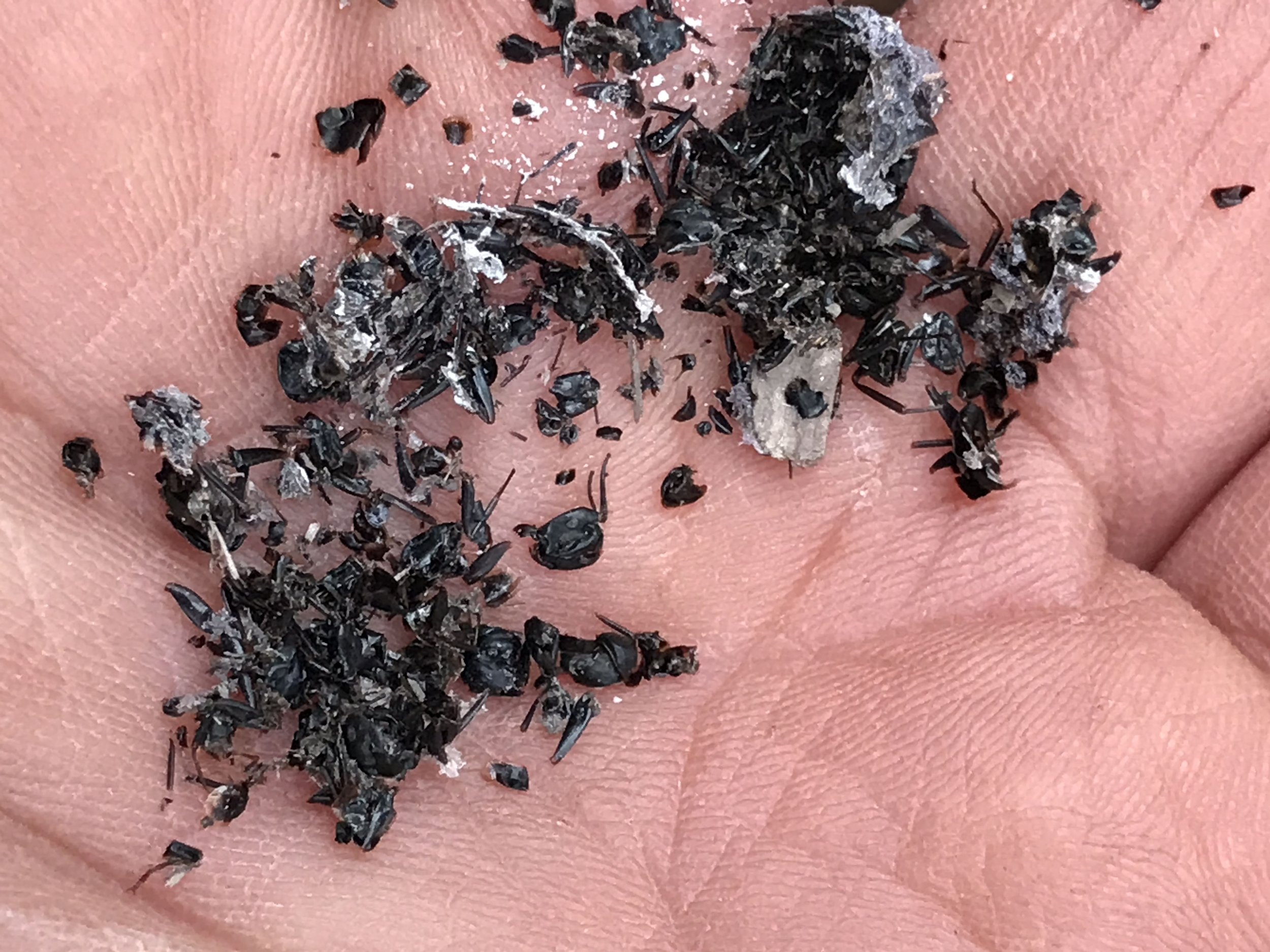
Deeper Questions of Common Sign : Tracking at Kinghurst
This past Saturday was another outing with the Earth Tracks Wildlife Tracking Apprenticeship. We went out to the Kinghurst forest in Grey County, Ontario to see what we could find together. It was a small group of six of us, but that made it a little bit sweeter as we could really dig in to all of the things we were seeing.

Sign of Birds in Algonquin Park
While in Algonquin Park this past week with the Earth Tracks Winter Wildlife Tracking Trip I tried to pay more attention to some of the bird sign throughout our days, though I didn’t always get some good photos, and I missed recording some beautiful songs and calls. I will share however what I did find in the park and what I have been able to learn thus far.

Wolf Trees, Stink Horns and Carrion Beetles
As I looked down at the leaf litter, I noticed quick movement and a small flash of orange and my heart began to sing. My hand shot so fast into the gooey death stenched Cedar leaves faster than anyone could see. Before anyone registered what I had done I was cradling a critter in my closed palm and I felt them defecate their lunch of corpse into my palm. Again kids, never do as I do.
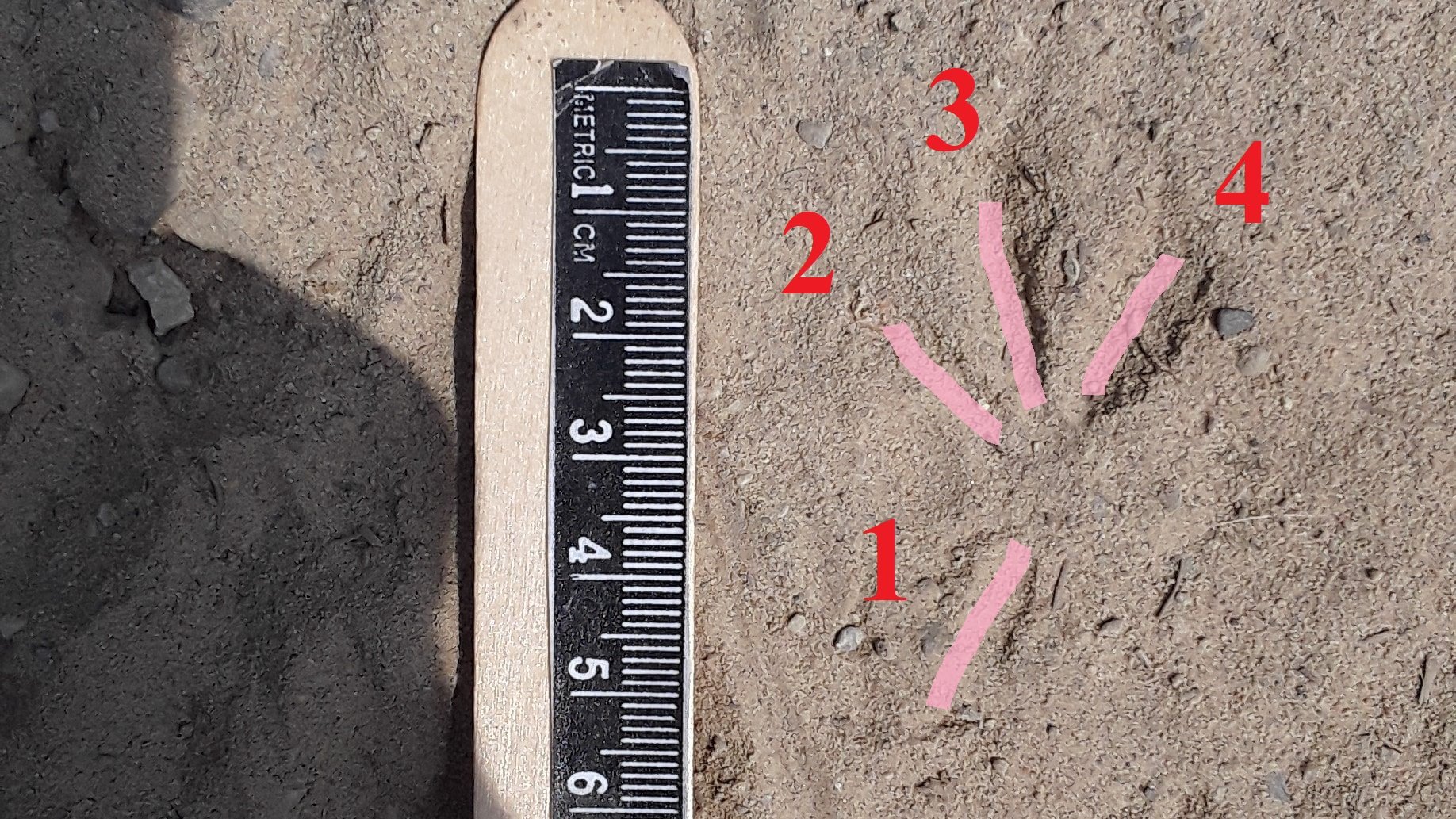
Tracking Birds At Saugeen First Nations, 2023.06.10
We parked and got out of the vehicles after a long drive and took to the sand right away to find some good tracks. While we did discuss some Red Fox and some Coyote tracks and gait patterns, I was really looking forward to finding some bird tracks. I was eager for the beach but James called me over to show me a track he’d found. It was from a bird! This was a great start to our day together as I came with the intention of tracking birds and we were only about four metres away from the cars. We got down to check it out.
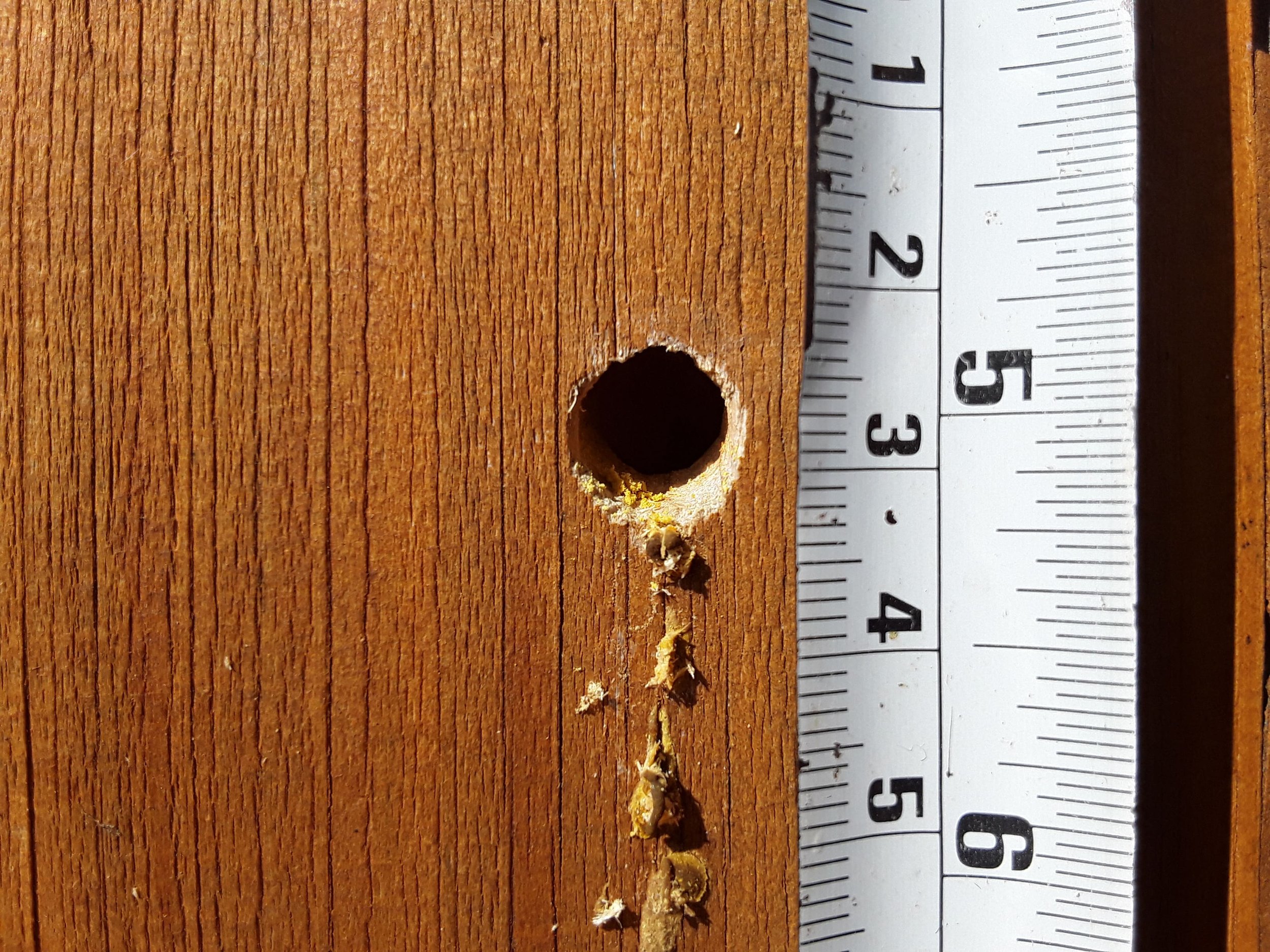
Tracking Walkabout, 2023.05.29
A couple nights ago, right before recording my radio show, a friend called and asked about some hole in the side of his walled in porch/anteroom/whatever thing. He even sent some photos. While we were on the phone, something flew past him and he described it with excitement.. It was like a big bee or something but it was shiny. I knew right off who it was.
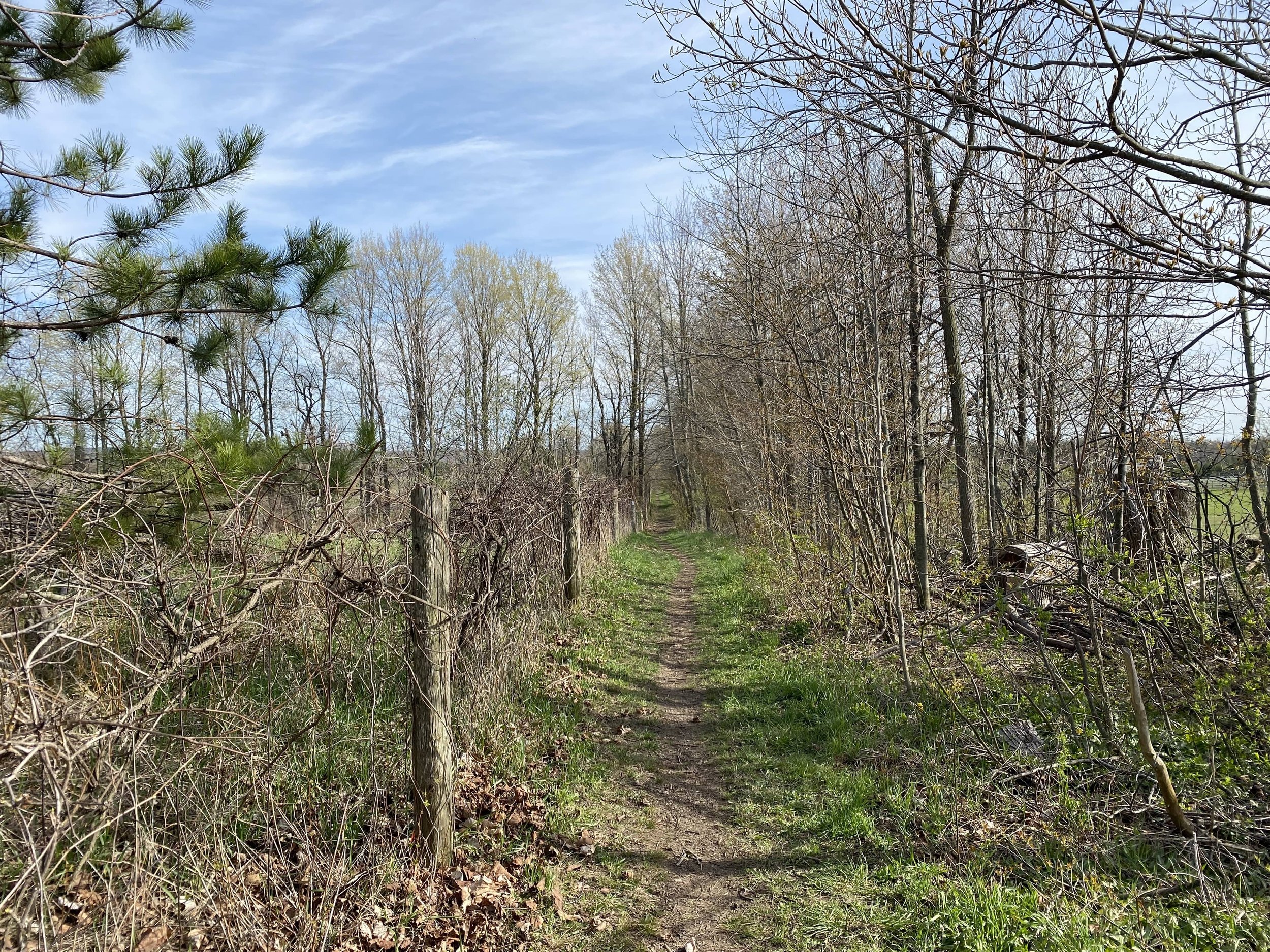
The Spring Birds of Dunby Rd
For our first day of the 2023-2024 Earthtracks Wildlife Tracking Apprenticeship we all gathered at Dunby rd to explore the tracks and sign of wildlife along, and adjacent to, the Bruce Trail. While we encountered much more than birds, I wanted to write a bit of a report back on some of the sign of the birds along the trail as I am trying to focus on learning more about bird track and sign this year. This includes feathers, nests, eggs, scat, pellets, dust baths, kill sites, tracks, feeding sign, etc., etc. For this outing it all started with song.

Learn The Land at Bishop Mac
On a recent Sunday I was out behind Bishop Mac High School with one of the classes I facilitate with my colleague Annie. The program is called Learn The Land, and it’s a ton of fun. Together we have been exploring three different locations around Guelph over the past year and getting to know the local ecology (and so much more). When it comes to Bishop Mac, or the South End Community Park, we had been there a couple of times in the past year, though both previous times were in the warmer months. We’ve observed the Osprey nests, and went on a birding adventure but this was our first time out in the Winter months. Sadly there was no snow, but that didn’t mean we didn’t find anything to really dig into.
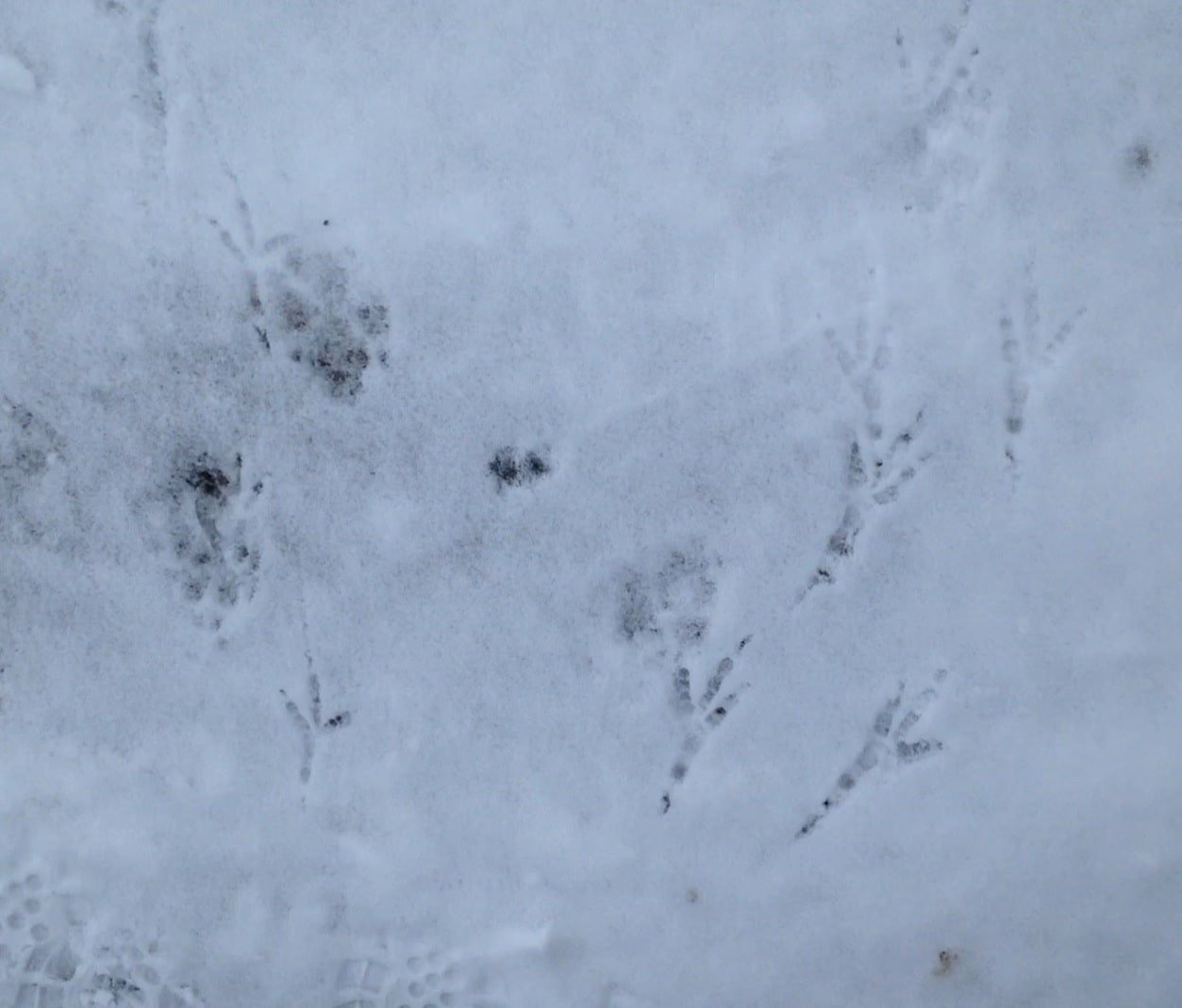
Corvid Tracks at Bishop Mac
I ended up driving across town this morning to visit a spot where I’ve found Osprey nests, plenty of White-tailed Deer trails as well as tons of Coyote scat and trails in hopes of trailing some animals. While I did backtrack, and later fore track a deer for a good portion of my morning, the most interesting find were the corvid tracks I found in the parking lot as soon as I stepped out of the car.
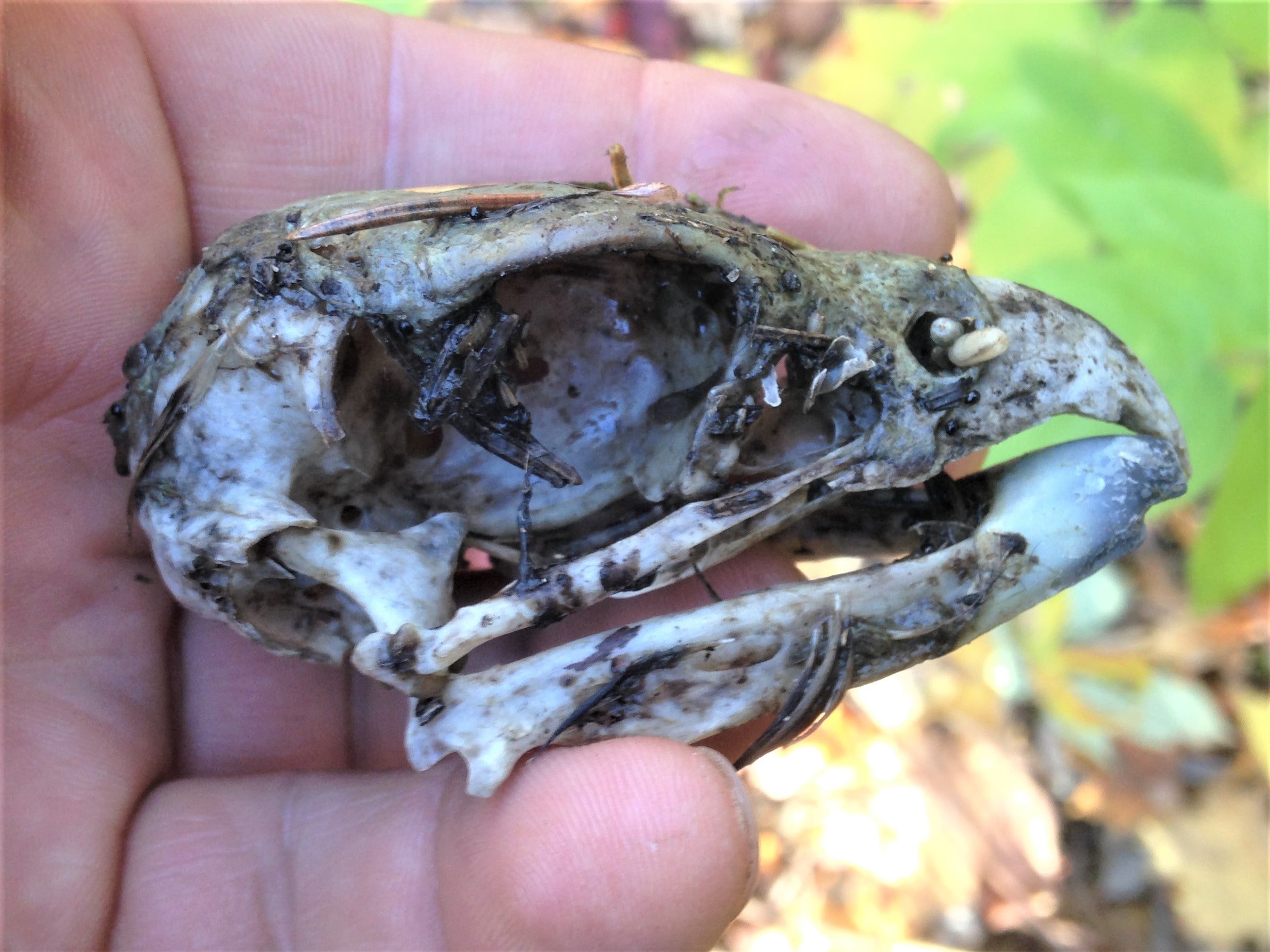
Along came a skull…
On Saturday October 29th, two days before the episode on my inappropriate appropriation of a Great Horned Owl skull aired, I drove to Mono Tract, North of Orangeville here in Ontario to pick up my partner from a day of learning about and harvesting roots from various species. I wasn’t there while they were doing this. Instead I was off at the Boyne Valley, still a little further North, trailing White-tailed Deer and looking for fungi, but when I arrived at the forest I was met with excitement about a skull.
As I came in, my friend handed me a small brown bag with a excited story about how they found a skull. I asked a couple of clarifying questions to seek out some basic answers, but things didn’t seem certain. I heard that there were talons, feathers, and some bones remaining, that the remains seemed maybe a couple weeks old, but aside from some guesses there was i.d. on whose skull it was and how it got there.

Tracking journal for 2021.11.07
I woke up “early” because of the time change and realized I had some time before any other commitments for the day so I checked to see if anyone wanted to come out with me to go see the morning world. No one did, so like many other mornings, it was time to be spent between myself and the land around me. Perfect.
An unfinished tracking journal, still worth the read.

Carrion Beetles pt. 1 : Nicrophorus tomentosus
After taking a bunch of photos of the dead Robin I flipped the carcass over to see if I could see any visible signs of trauma. I noticed a wound on the back of the neck, but I got totally distracted when a small orangey-yellow thing crawled deep into the grass…
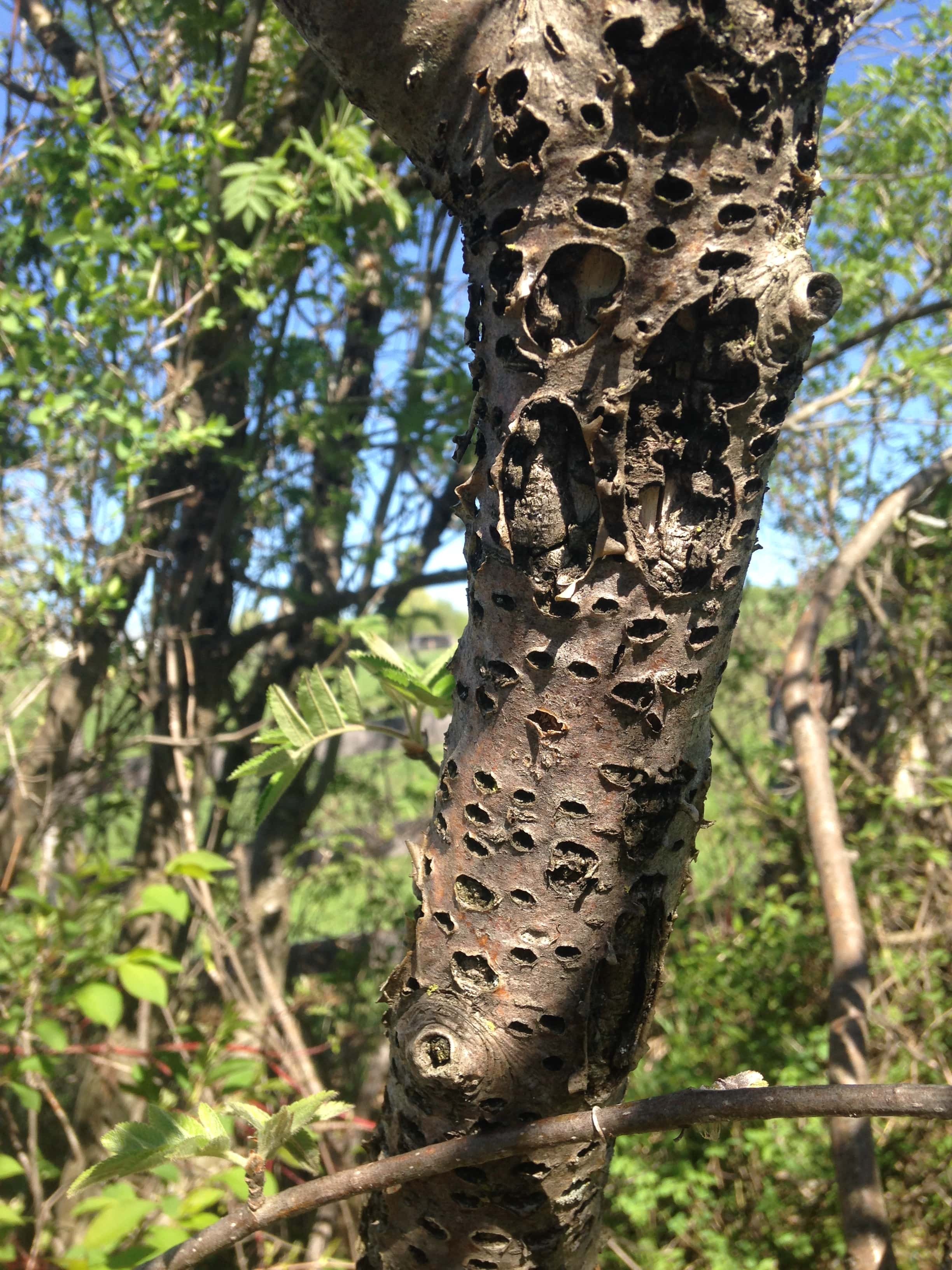
A Short Note On Sapsucker Ecologies
About 1o minutes North of Orangeville, along the fence line of Bruce Trail at Dunby rd, there are a couple of American Mountain Ash trees. These trees are related to the other Sorbus species from around the world, but this one is native to the area. Shorter trees, compound leaves, bright red fruit all help to identify these trees in the warmer months. But in the Winter and early Spring when the leaves and fruit have fallen, the bark becomes a great focal point for local ecologies.
The rows of small holes of various age and sizes freckle the bark like oversized lenticels. It kind of looks like a canker or fungal infection, but it’s not. It is actually the work of a meticulous and skilled member of the Picidae family; the Yellow-bellied Sapsucker, a bird which I have not seen that often, but I have come across their sign quite a bit.
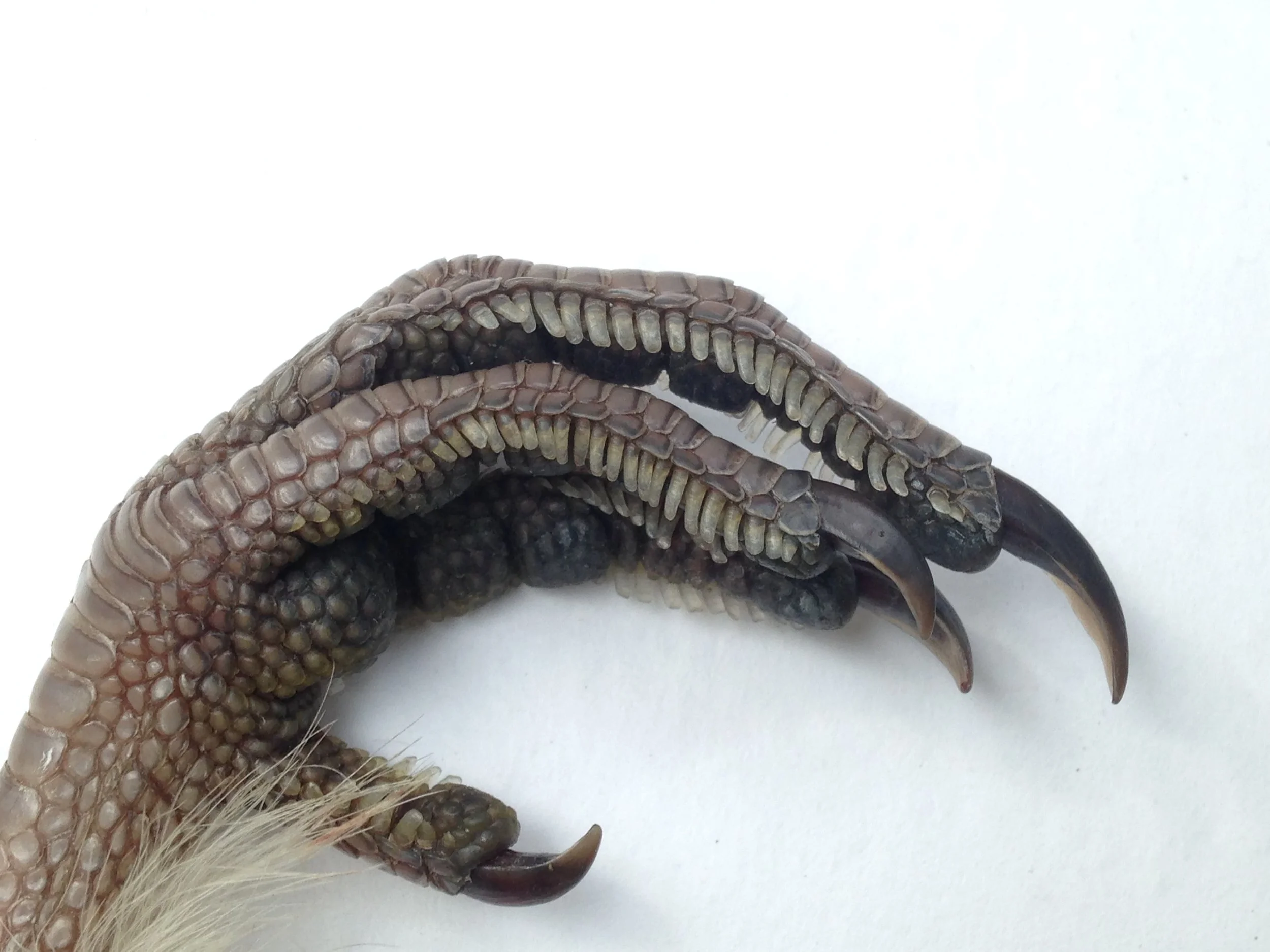
Ruffed Grouse Questions from 2022.01.15
Ruffed Grouse were all around us in the forest when we arrived. Many were heard, some were seen, but even more so, their tracks littered the forest floor. There were these sunken oval impressions generally in the shape of a Grouse body pressed into the snow. We put our hands in despite the -20°C temperatures and felt the bottom the impressions. There was a hard icy crust in some of them, but not in others. There was scat in a couple, but not all. All had long chains of tracks emerging from them, but none had discernable tracks leading to them. What was going on?

What happened to this Gull?
I was walking up the frozen river with some kids in tow. We’d been out for a few hours tracking when we were on the last stretch and one of the kids pointed to a small mound on the ice. “Look a Penguin!” I think she’d meant it as a joke, but I took note and walked towards the mound. I had walked along this frozen river the day before and hadn’t noticed a mound on the middle of the river bulging out of the ice. I couldn’t tell what it was at first, but my guess was that a log or branch had broken through somehow. As I got close, I learned it was nothing of the sort.

White Fragility and Fake Blues in a Blue Jay Feather
Lighter or whiter parts of feathers break down more readily. One of the reasons is that darker feathers contain different pigments. The pigments make them stronger and more resilient in the face of harsher conditions. Additionally, white and blue aren’t real colours at all but structural colours created by the structure of the feather itself. Check it out.

Tracking Journal for 17.07.2021, Saugeen Shores
We got into the cars and made our way an hour or so West towards the Saugeen First Nation territory on the shores of Lake Huron. There we explored the sandy beach and discovered an amazing amount of animal sign, from the tiniest larva to the largest birds in the region. It was a great day!

Predated Mallard nest
Returned to a Mallard nest only to find that someone had come along and eaten the eggs. Thus began the search for clues to sort out who was the predator? An old fashioned whodunnit, tracker style.
